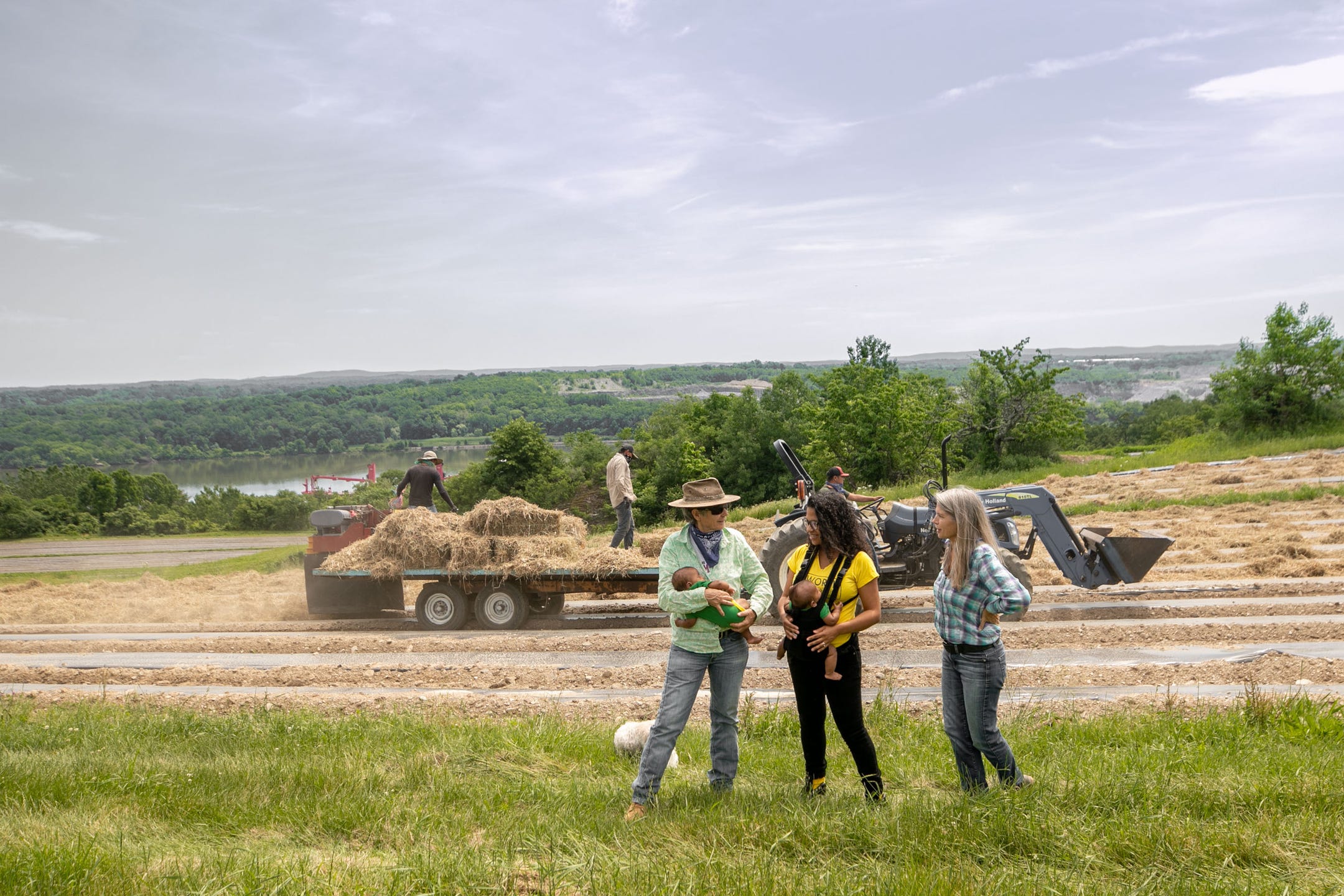
Chances are good that a lot of the produce sold at local farmer’s markets was grown by a woman-owned farm in the mid-Hudson Valley, including these.
The farmer walked between the rows of newly planted greens. Pointing out the farm’s most popular spring mix and explaining why netting covered other rows, the farmer then walked over to one of the several greenhouses on the Bloomingburg property to discuss the tomato plants that were just beginning to creep their way up the string trellises.
A sun hat did little to stave off the unusual early spring heat while Melissa Phillips led the impromptu farm tour, but she didn’t seem bothered by the temperature as her 2-month-old son Griffin snoozed in a carrier against her chest. Phillips runs Hidden Acre Farm with her partner, Jack Whettam.
According to the U.S. Department of Agriculture's 2017 Census of Agriculture, 36% of the nation's farmers are female. Women farmers may differ from the traditional idea of who works the land, but — especially here in the Mid Hudson Region — the chances are good that a lot of the produce sold at local farmer’s markets was grown with a woman’s touch.
Farmers: Meet the new generation
Defying traditional roles
Elizabeth Ryan has been a farmer for 35 years and is the owner of Breezy Hill Orchard and Knoll Krest Farms in Dutchess County, and Stone Ridge Orchard and Hudson Valley Farmhouse Cider in Ulster County.
“I didn’t grow up on a farm, but I spent every summer on my grandfather’s farm in Iowa,” Ryan said. “I grew up in a very gender-specific, conservative family. I wasn’t allowed on the tractor because I was a girl. After I graduated Cornell University with a degree in pomology (the science of growing fruit), and pursued farming, my mom said, ‘We should have let her get on a tractor, and got it out of her system.’”
The farm meetings Ryan attended at first would include a few hundred men and only six or seven women. “But the grower community was very encouraging," she said, "even then.”
Despite her success, Ryan said she still feels that farming can be difficult for women : “It’s been hard to get some of my staff — particularly men from different cultures — to respect my knowledge. I tend to have a pretty soft management style, and it’s been a struggle.”
At Hidden Acre, farmer Phillips, too, has noticed some instances of bias. “At some of the markets we used to attend, people seemed surprised to see me, a female farmer,” she said. “They’d be addressing Jack instead of me. But a large portion of the farming business is female. It’s becoming normalized.”
Doris Bialas has farmed for the past 50 years alongside her husband, Sonny, on his family’s New Hampton farm that dates back more than 80 years. The family grows 80 varieties of vegetables on their 55-acre Bialas Farm.
Now their daughter, Kasha, and grandson, Thomas, work there, too. Men have traditionally done the more physical work on the farm, while women tended to do the more intellectual jobs, such as bookkeeping, in addition to raising children, Bialas noted.
Wives in a farming family often were called upon to provide something their husbands couldn’t, Bialas added. “Historically, farmers didn't have health insurance, and a lot of wives had jobs elsewhere, like teaching, in order to have their family's health insurance covered," she said.
Still, more often than not, you’ll find Doris behind the wheel of the forklift, pitching in to ensure everything gets done.
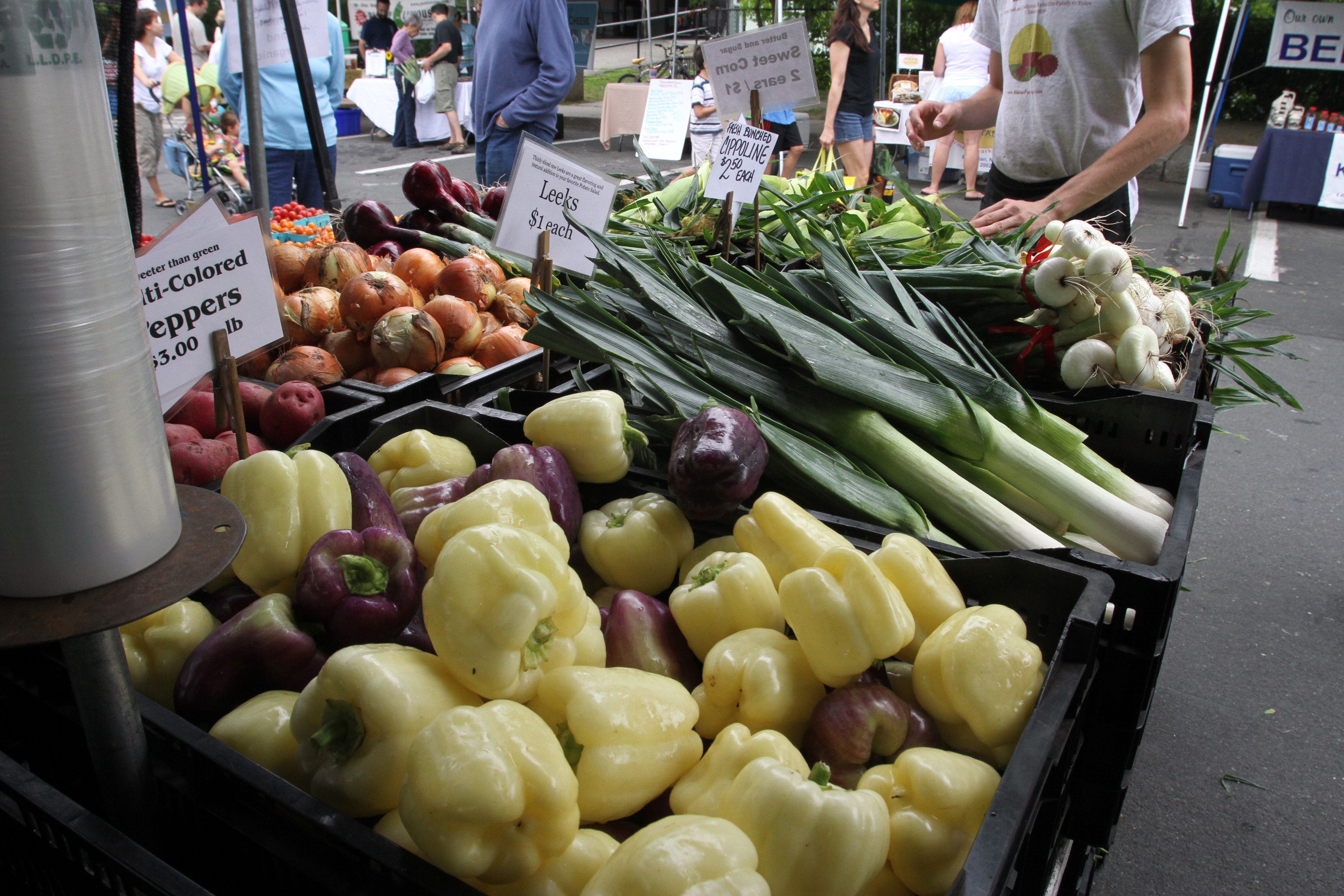
Farming by necessity
Goshen Green Farm sold its produce wholesale since 2011 off Route 207, on land that was formerly part of the expansive 1860s-era Gates McGarrah estate. Then a divorce left Susan Hito-Shapiro — a filmmaker and environmental attorney — as owner of the farm. The need for a change in operations came about four years ago.
“I was driving the tractor, plowing the field like we always had, and it began turning in circles because it had gotten stuck in a wet part of the ground,” she explained.
Rather than just give in to her exasperation, Hito-Shapiro converted the farm to raised beds to better control drainage and situated them in a circular format laid out according to the natural compass points. The result is a labyrinthine four acres of no-till, biodynamic permaculture.
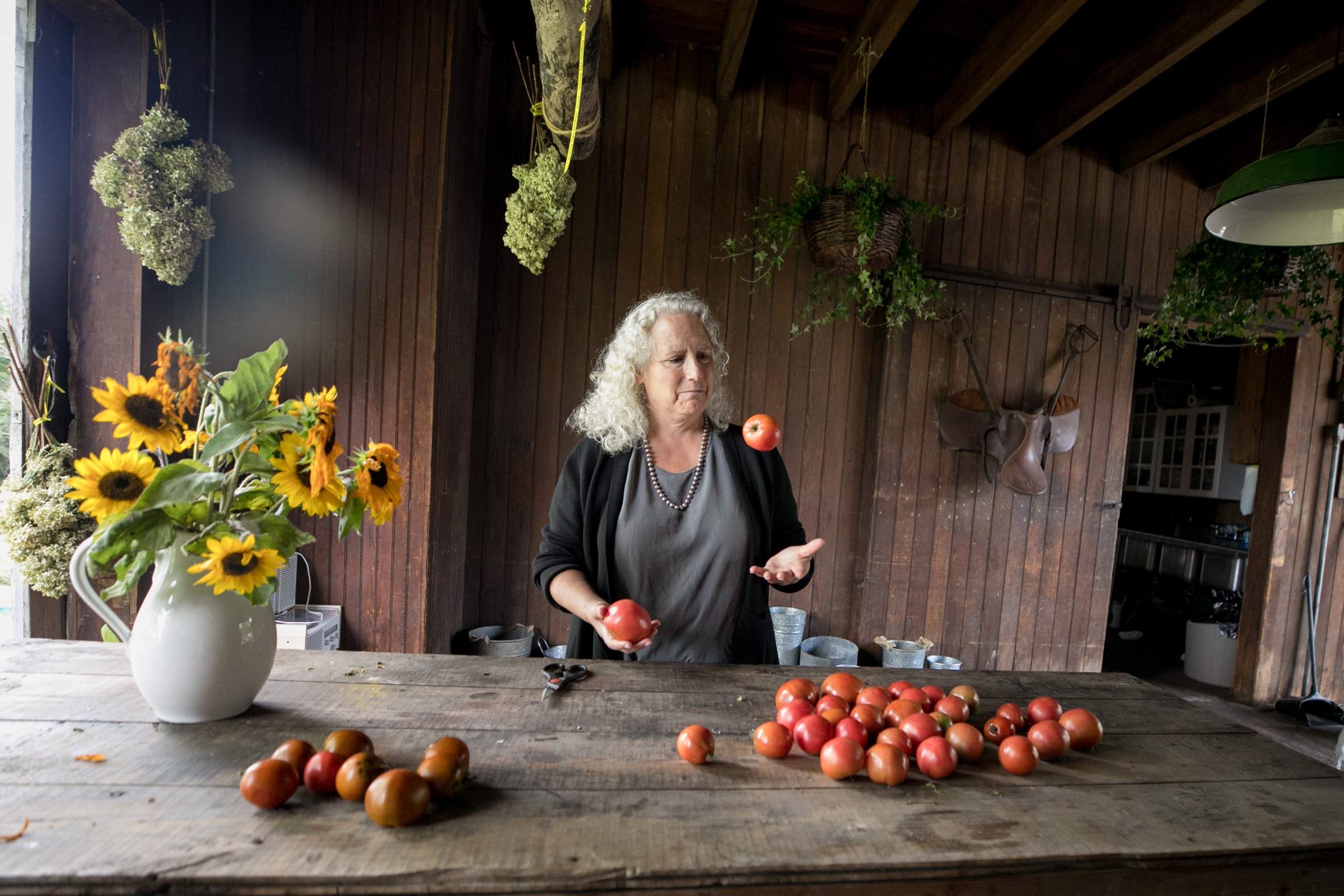
Besides the efficient use of space, the layout offers a perfect spot for outdoor cocktail parties and weddings, something Hito-Shapiro would like to encourage.
Hito-Shapiro credits the farm’s success to the creativity shared by all the women on the farm, including Farm Manager Merry McLoryd, who was Hito-Shapiro’s classmate in junior high.
“Many of our choices about which plants to grow are based on mixing colors and creating a beautiful landscape,” Hito-Shapiro said. “We also have become devoted to companion planting, which is the way we view life: that through friendship and companionship we can support each other and help each other grow to our best potential.”
7th-generation farmers in Milton
Along the Hudson River in Milton, the seventh-generation Hepworth Farms was established in 1818 and is currently run by twin sisters Gail and Amy Hepworth, with Gail’s daughter and twin granddaughters possibly picking up the reins in the future.
“We’ve been woman-owned — by my mother, Lois — since 1973,” Gail Hepworth explained. “Dad left the family in 1972.” But it didn’t stop their mother, who took over running the farm, Gail said with admiration, “There’s nothing in her that says ‘fail.’
“It’s just part of our life,” Gail continued matter-of-factly. “It’s never been politicized.”
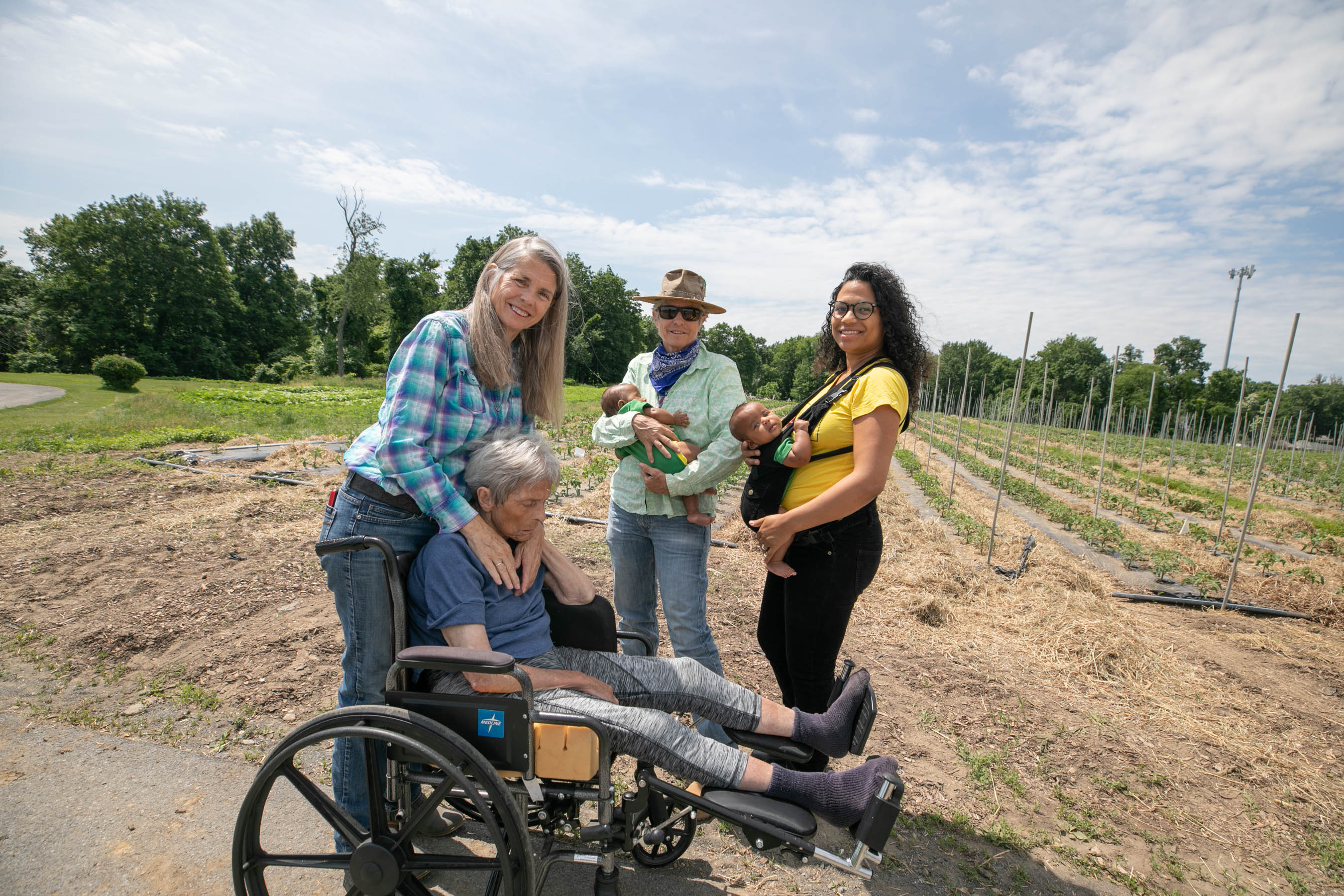
Lois was often the only woman at farm meetings, and when Amy graduated Cornell University with a degree in agriculture and pomology, Lois tried to discourage her from returning to the farm because she knew it wasn’t an easy life.
But Amy persisted, and now she and Gail oversee 550 acres of farmland growing 400 varieties of organic vegetables. The farm had shrunk to 20 acres by the time the twins were in college: In fact, it was Lois’ resourcefulness in selling their farmland that afforded Amy and Gail — who has a biomedical engineering degree from Boston University — their educations. Fifty acres at a time, the Hepworths have bought back farmland and returned it to agricultural production.
“Each 50 acres moves a million dollars into the economy, well-spent dollars,” Gail explained. “So you have a mini economic generator when farms go back into operation.”
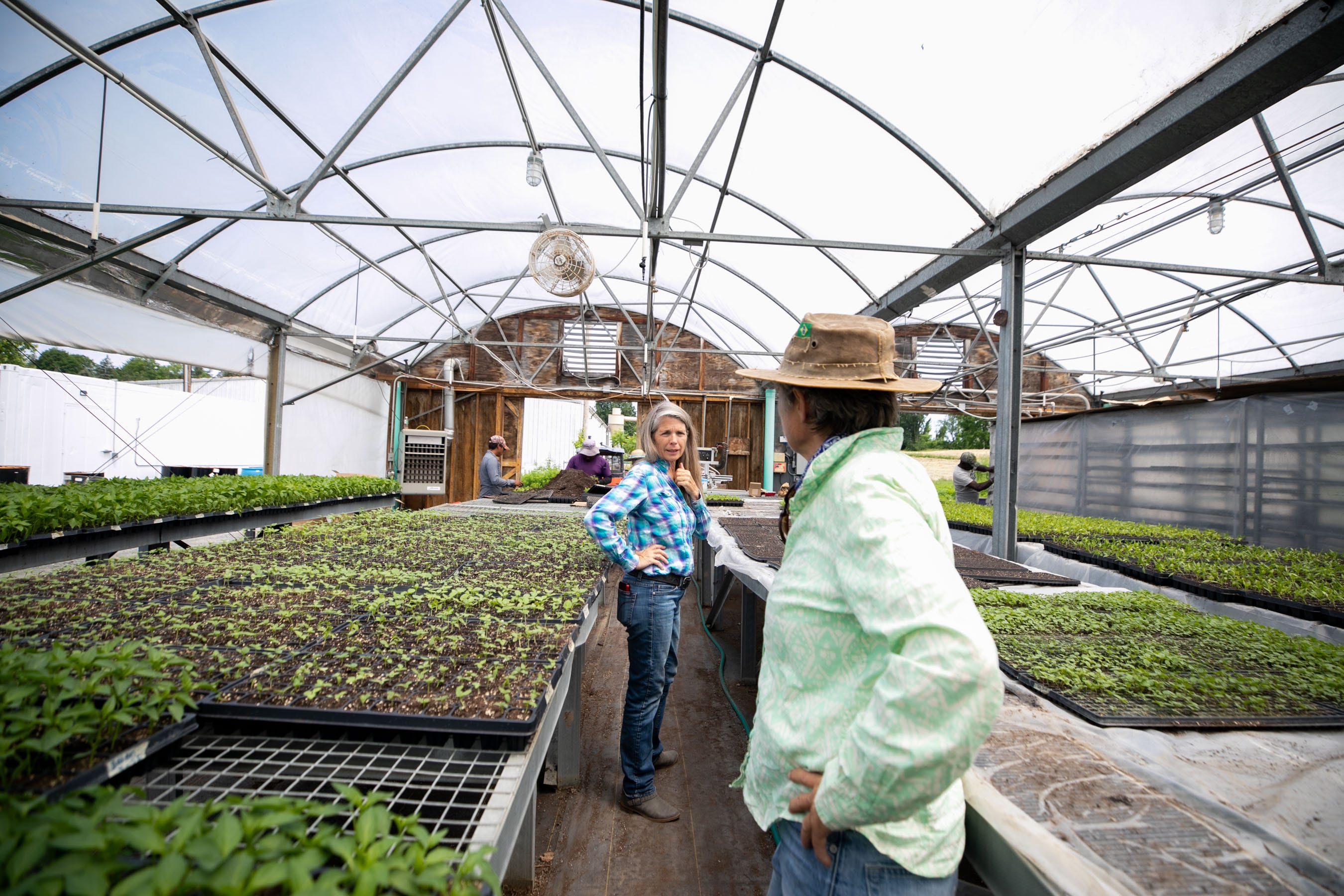
Farming is not easy, the Hepworths both acknowledge.
You know what farmers do all day? They solve problems. Disease, insects, drought. … Farmers need to be aware of the natural environment and how to maneuver around it. A lot of farming also has to do with management of people, and that’s something we do well.
“I’ve had people tell me, ‘No male farmer would do what you do: 500 acres, 400 varieties of vegetables? It’s far easier to grow much fewer varieties of vegetables on a scale like that,’” Amy said. “Yes, to grow and maintain a healthy farm is difficult. And I do think we as women sometimes complicate things. But we are mission-driven around humanity, around the environment; not centered around money, just centered around people and, for me, the ecology.”
Management is where women excel, Amy said.
“You know what farmers do all day? They solve problems,” she said. “Disease, insects, drought. … Farmers need to be aware of the natural environment and how to maneuver around it. A lot of farming also has to do with management of people, and that’s something we do well.
“We love our workers, we really do. They’re retained and they’re really skilled. We have men and women teams. Women have strengths, men have strengths; you position those strengths, and you don’t discriminate against any of them.”
Innovations and collaborations
The Hepworth Farm is more than a produce farm: Amy has collaborated with Cornell Cooperative Extension, offering farmland for research purposes. And when the Hemp Farming Act of 2018 was passed in Congress, the Hepworths researched cannabidiol’s benefits and, a year later, established Hempire State Growers, producing more than 300 acres of organically grown, hand-harvested and hand-dried hemp and selling CBD products in their market on busy Route 9W in Milton.
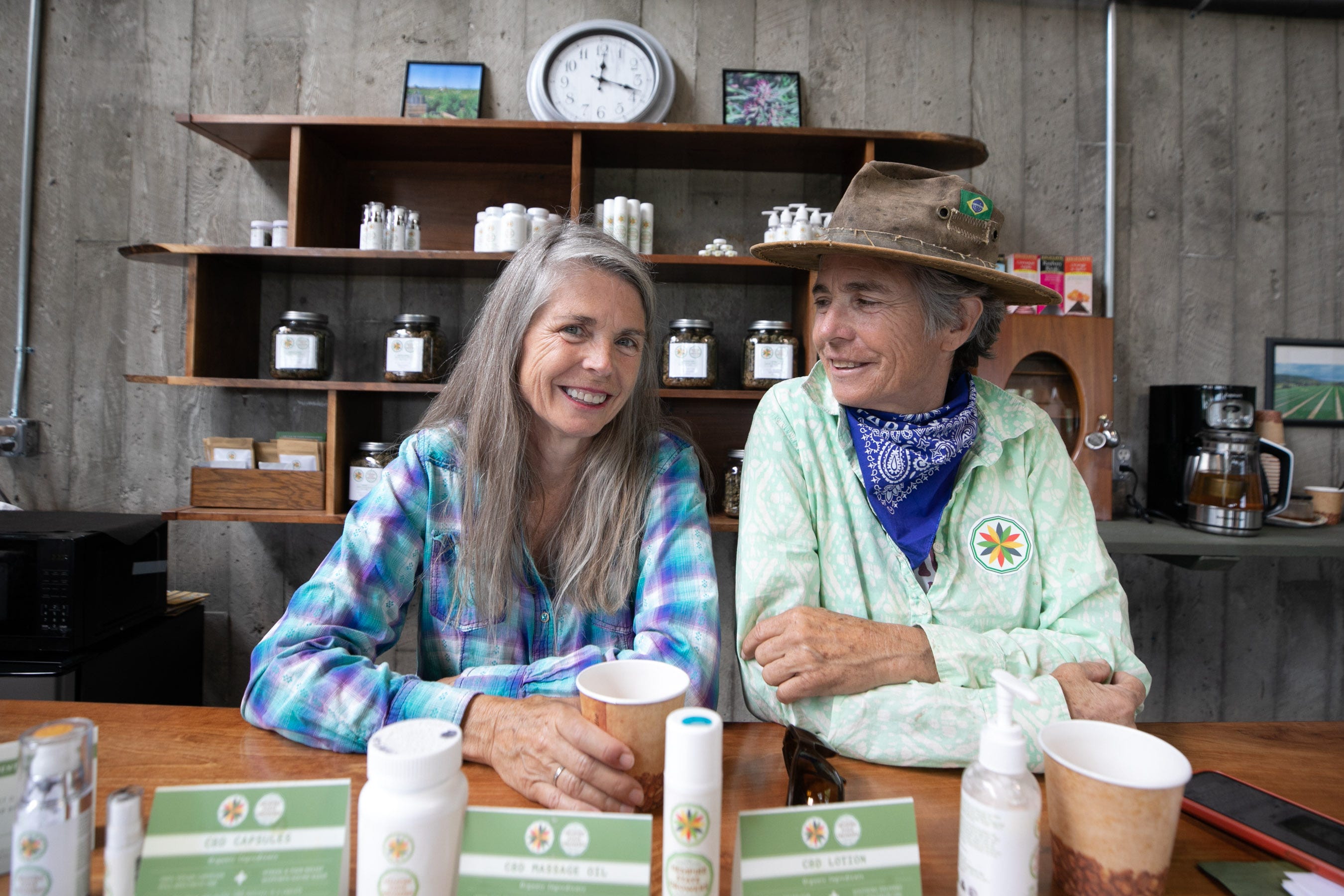
Over the past few years, Goshen Green Farm collaborated with Susan Hito-Shapiro's daughter Ana on popular farm dinners, which were held regularly for three years in a copper-roofed chestnut barn before the pandemic halted them. This year, they will continue the farm-to-table dinners outside, with various guest chefs.
Last year, they opened a charming farm store selling bottled herbal teas, dried teas and herbs jams, and produce grown on the farm and in the 150-year-old greenhouse, and held weekend brunches. Other plans include a center for education — with immersive retreats and work stays.
We do ‘beyond organic’ here. We like educating our customers on how our food is produced, and why it tastes better.
Would these innovations have come about without a woman’s mind to conceive them? It’s hard to tell, but the caring gene certainly plays a part in Goshen Green’s day-to-day.
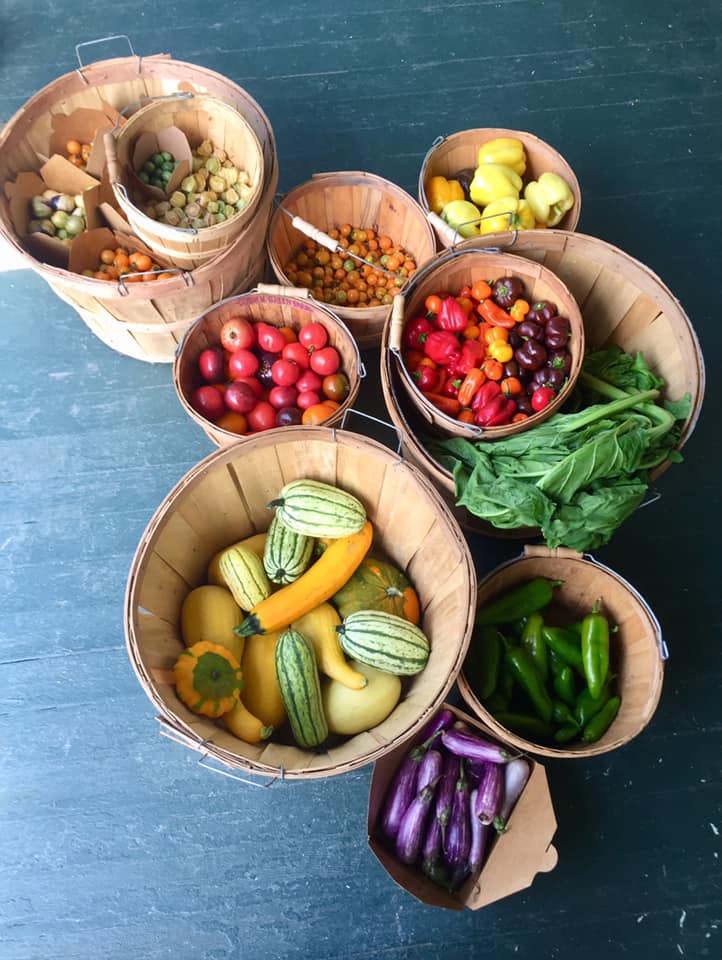
“We do ‘beyond organic’ here,” McLoryd explained. “We like educating our customers on how our food is produced, and why it tastes better.”
Back in Ulster County, Ryan felt the need to celebrate women growers, so this year she co-produced the inaugural Women in Food and Farming Festival with Caylin Sanders and EscapeMaker.com. The hybrid live/virtual gathering took place over Mother’s Day weekend “to honor woman-owned farms, businesses, and entrepreneurs in the food and craft beverage industries.”
The event included speakers, a farmer’s market, vendors, and a craft beverage tent. For those who couldn’t attend in person, industry professionals hosted more than 25 online tours, demonstrations, and educational presentations on various topics.
“It was heartening to see so many women owning these businesses, and they are artisans,” Ryan said.
Overall, the idea of female farmers shouldn’t be a surprise, Ryan concluded: “Women have refined palates. We’re kind of coded to smell stuff. Like most moms, you can hear your kid a mile away. We have an acute awareness of things.”
There’s nothing Ryan would rather do, she said.
“I signed up for this and I love it. It’s like you’re in the Garden of Eden."
Jane Anderson is a Hudson Valley freelance writer. Contact her at thrnewsroom@th-record.com.